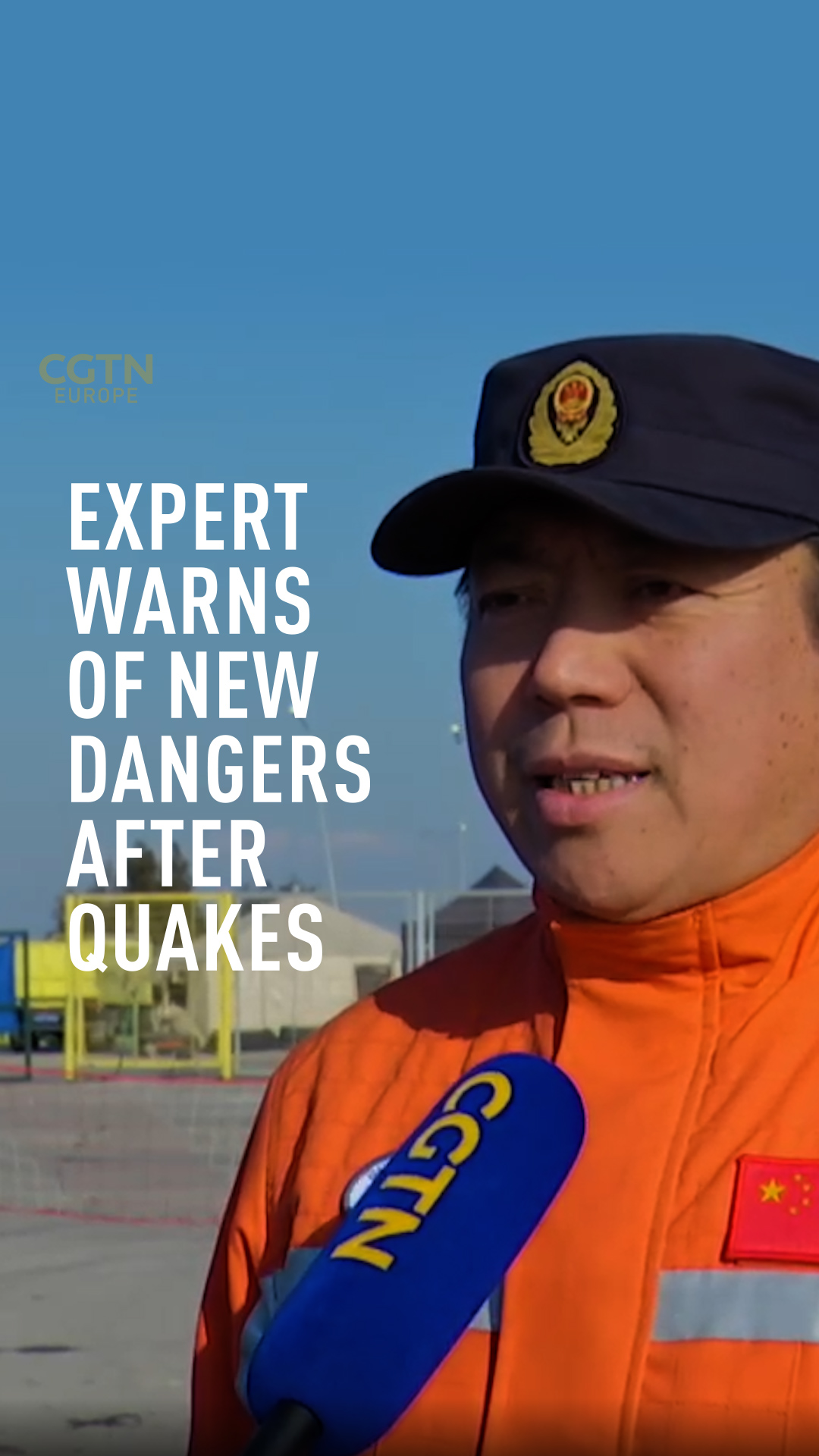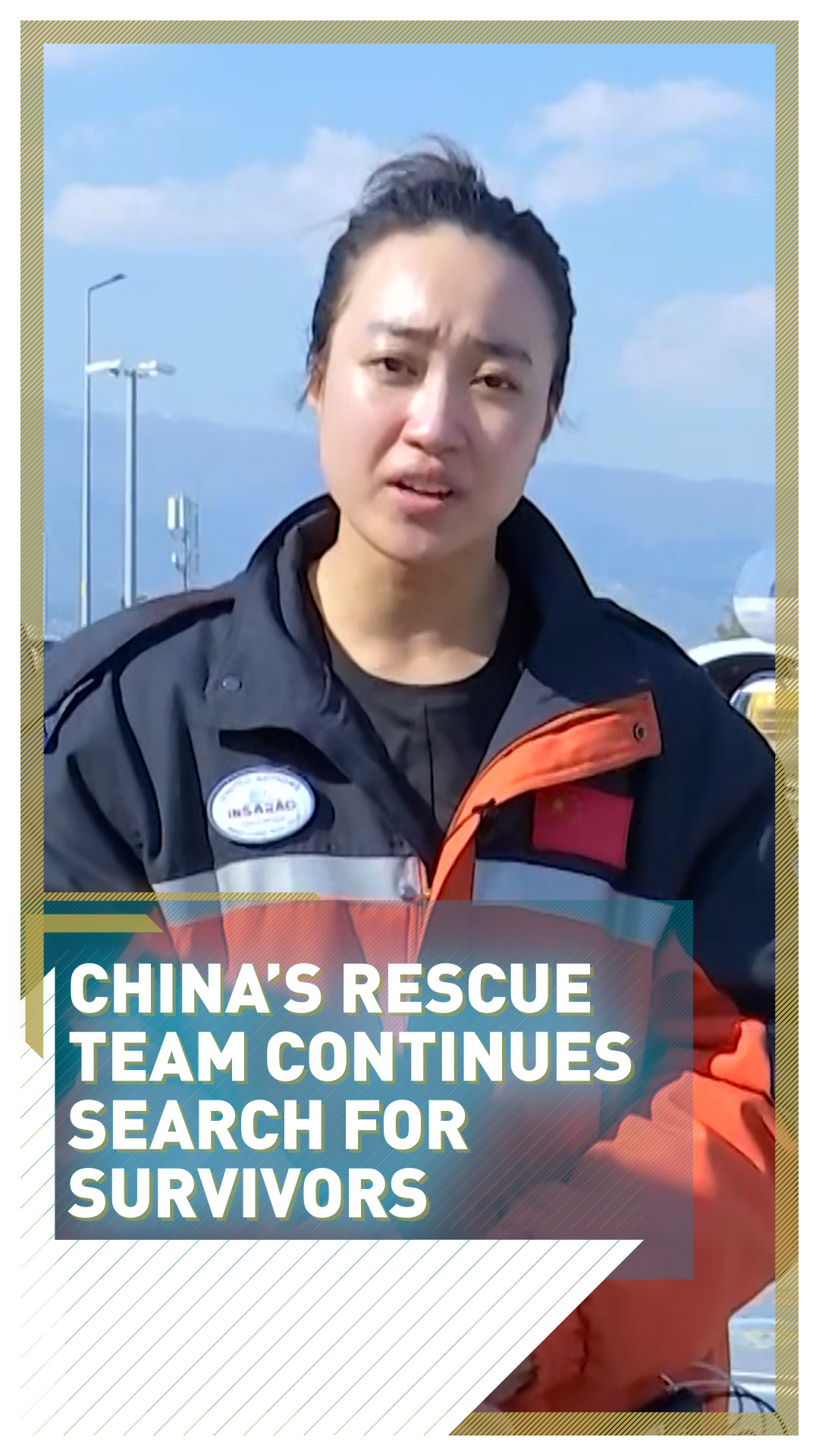
A person is pulled out from the rubble of a collapsed building, in the aftermath of a deadly earthquake in Turkey's Hatay. /Clodagh Kilcoyne/Reuters
A person is pulled out from the rubble of a collapsed building, in the aftermath of a deadly earthquake in Turkey's Hatay. /Clodagh Kilcoyne/Reuters
Türkiye President Recep Tayyip Erdogan said on Tuesday that last week's powerful earthquakes were "as big as atomic bombs" and have killed 35,418 in the country's southern region.
Erdogan also said that hundreds of thousands of buildings were uninhabitable across southern Türkiye, adding "any country would face issues we did during such a disaster."
But he did concede that building regulation needs revising, saying "collapsed buildings reminded the government of the need for stricter construction rules" in a televised speech, adding that his government would continue work until the last person was rescued from the ruins in the quake-hit area.
Seven survivors were pulled from the rubble in Türkiye on Tuesday, more than a week after two devastating earthquakes, as the focus of the aid effort shifted to helping people now struggling without food or shelter in near-freezing winter conditions.
The combined death toll in Türkiye and neighboring Syria has continued to mount, exceeding 37,000 on Tuesday.
The seven rescued on Tuesday included two brothers, aged 17 and 21, who were pulled from an apartment block in Kahramanmaras province, and a woman rescued from a destroyed building in the southern Turkish city of Antakya.
READ MORE
World's smartest dog breeds revealed
Poll: U.S. should lift Syria sanctions for disaster
The Secret Betrayal: China's WWII sailors
But the UN said the rescue phase was coming to a close, while the White Helmets rescue team in Syria announced its search for survivors was about to end in the northwest of Syria.
Russia also said it was bringing its search and rescue work to a close and preparing to withdraw from the disaster zone, as aid workers considered how to look after the many survivors who have been left homeless.
"The needs are huge, increasing by the hour," said Hans Henri P. Kluge, the World Health Organizations's director for Europe. "Some 26 million people across both countries need humanitarian assistance."
01:41

"There are also growing concerns over emerging health issues linked to the cold weather, hygiene and sanitation, and the spread of infectious diseases – with vulnerable people especially at risk."
"People are suffering a lot. We applied to receive tent, aid or something but until now we didn't receive anything," said Hassan Saimoua, a refugee staying with his family in a playground in Türkiye's southeastern city of Gaziantep.
Many Syrians had found refuge in Gaziantep from the war at home, but were left homeless by the quake and forced to erect makeshift homes outdoors.
There were also reports of more and more patients coming into Turkish and Syrian hospitals, not just with physical injuries, but baring the psychological impact of the quake.
"Now more of the patients are coming with post-traumatic stress disorder, following all the shock that they've gone through during the earthquake," said Indian Army Major Beena Tiwari, who has been working at a Turkish field hospital in the southern city of Iskenderun.
01:16

UN aid drive
Meanwhile, a first convoy of UN aid entered rebel-held northwest Syria from Türkiye via the newly-opened Bab al-Salam crossing.
The delivery comes after Syrian President Bashar al-Assad agreed on Monday to allow UN aid to enter from Türkiye via two more border crossings – a change in approach from Damascus, which has long opposed aid deliveries to the rebel-held areas directly via Türkiye.
Nearly nine million people in Syria were impacted by the earthquake, the UN said, as it launched a $400 million funding appeal to help the situation there.
"The human suffering from this epic natural disaster should not be made even worse by manmade obstacles -- access, funding, supplies," said UN chief Antonio Guterres from the international body's headquarters in New York.
"Aid must get through from all sides, to all sides, through all routes – without any restrictions."
Activists and emergency teams in Syria's northwest have criticized the UN's response in rebel-held areas, contrasting it with the aid delivered to government-controlled areas.
Erdogan, who faces an election scheduled for June, has acknowledged problems in his country's initial response, but said the situation was now under control.

NASA published these satellite images that show the areas where the most buildings have been destroyed by earthquakes in Türkiye, highlighted in red./NASA
NASA published these satellite images that show the areas where the most buildings have been destroyed by earthquakes in Türkiye, highlighted in red./NASA
Source(s): Reuters